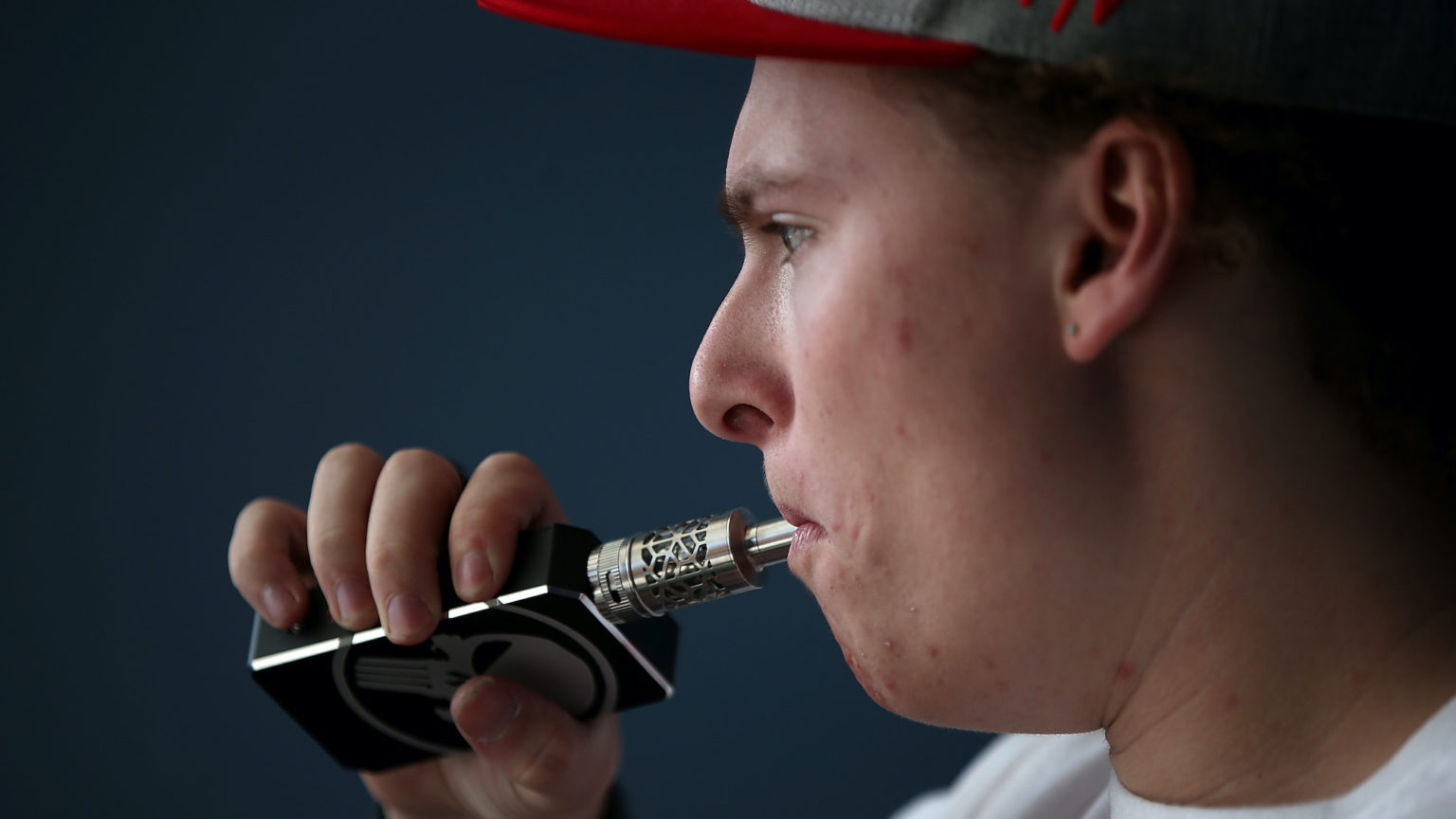E-cigarettes are not our enemy
A clampdown on vaping would severely damage public health.

Over the past few years, the Department of Health and Social Care has become a fizzing hub of nanny statism.
Matt Hancock was recently caught with his knickers up the flagpole and forced to resign as health secretary. But his successor, Sajid Javid, wants to keep Hancock’s legacy alive, making our lifestyle choices for us through patronising public-health interventions.
Javid has hit the ground running. He is happily pursuing his predecessor’s plan to make England ‘smoke free’ by 2030. As part of that strategy, he is reportedly considering restricting the sale of e-cigarettes to adults over the age of 21.
Putting aside the government’s haughtiness in treating us like children, trying to wean us off cigarettes, a crackdown on vaping is bound to backfire. Vaping is genuinely a silver bullet. It is the one and only route to a smoke-free England. Vaping is a very effective method of helping smokers to quit. More than half of the UK’s vapers are ex-smokers – roughly 1.7million people.
Once ex-smokers switch to e-cigarettes, they are much better off for it: vaping is estimated to be 95 per cent less harmful than ordinary cigarettes and drastically less likely to give you cancer. Everyone else is better off, too, because e-cigs produce no second-hand smoke. Second-hand vapour poses a negligible health risk – plus, it smells much nicer.
The public-health lobby’s hatred for vaping is deranged and nonsensical. Banning vapes is like trying to prevent car crashes by banning brakes. And yet, the World Health Organisation consistently pressures policymakers around the world to adopt this actively harmful stance. Our government is becoming more susceptible to this by the day.
If vaping is, for unfathomable reasons, no longer part of the government’s arsenal in its war against cigarettes, what other tricks does it have up its sleeve?
Javid is reportedly also considering a ban on the sale of cigarettes to adults under the age of 21. But trying to eliminate smoking by banning it, bit by bit, has never worked. That’s because people always find a way to circumvent a ban. For instance, despite Australia’s aggressive anti-smoking laws, smoking rates have been declining at a negligible rate in recent years. The proportion of the population that smoked every day fell by only 1.2 percentage points between 2016 and 2019.
As the Institute of Economic Affairs’ Christopher Snowdon shows in his Nanny State Index, there is little evidence that paternalistic policies lead to improved health outcomes.
This ill-thought-out, slapdash approach to public health can only fail. It will mean fewer people will quit smoking. And criminal gangs will have a field day as the illegal market for selling vapes and cigarettes to young people explodes.
Nanny-state policies never work, but the government never learns.
Jason Reed is the UK lead at Young Voices. Follow him on Twitter: @JasonReed624
Picture by: Getty.
To enquire about republishing spiked’s content, a right to reply or to request a correction, please contact the managing editor, Viv Regan.








Comments
Want to join the conversation?
Only spiked supporters and patrons, who donate regularly to us, can comment on our articles.